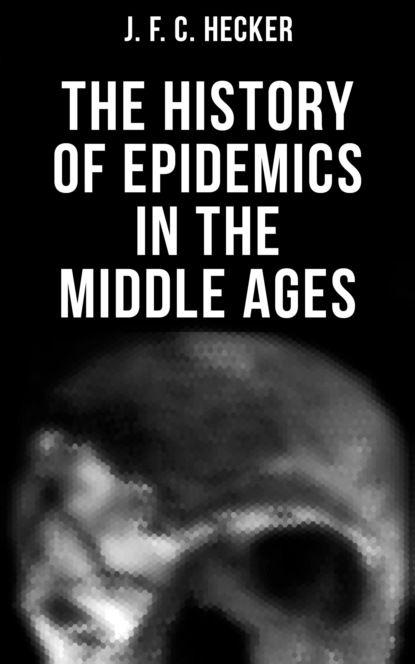Milan especially felt the scourge of the plague, a special council of health, consisting of three nobles, was established at Venice, who probably tried every thing in their power to prevent the entrance of this disease, and gradually called into activity all those regulations which have served in later times as a pattern for the other southern states of Europe. Their endeavours were, however, not crowned with complete success; on which account their powers were increased, in the year 1504, by granting them the right of life and death over those who violated the regulations195. Bills of health were probably first introduced in the year 1527, during a fatal plague196 which visited Italy for five years (1525–30), and called forth redoubled caution.
The first lazarettos were established upon islands at some distance from the city, seemingly as early as the year 1485. Here all strangers coming from places where the existence of plague was suspected were detained. If it appeared in the city itself, the sick were despatched with their families to what was called the Old Lazaretto, were there furnished with provisions and medicines, and, when they were cured, were detained, together with all those who had had intercourse with them, still forty days longer in the New Lazaretto, situated on another island. All these regulations were every year improved, and their needful rigour was increased, so that from the year 1585 onwards, no appeal was allowed from the sentence of the Council of Health; and the other commercial nations gradually came to the support of the Venetians, by adopting corresponding regulations197. Bills of health, however, were not general until the year 1665198.
The appointment of a forty days’ detention, whence quarantines derive their name, was not dictated by caprice, but probably had a medical origin, which is derivable in part from the doctrine of critical days; for the fortieth day, according to the most ancient notions, has been always regarded as the last of ardent diseases, and the limit of separation between these and those which are chronic. It was the custom to subject lying-in women for forty days to a more exact superintendence. There was a good deal also said in medical works of forty day epochs in the formation of the fœtus, not to mention that the alchymists expected more durable revolutions in forty days, which period they called the philosophical month.
This period being generally held to prevail in natural processes, it appeared reasonable to assume, and legally to establish it, as that required for the development of latent principles of contagion, since public regulations cannot dispense with decisions of this kind, even though they should not be wholly justified by the nature of the case. Great stress has likewise been laid on theological and legal grounds, which were certainly of greater weight in the fifteenth century than in more modern times199.
On this matter, however, we cannot decide, since our only object here is to point out the origin of a political means of protection against a disease, which has been the greatest impediment to civilization within the memory of man; a means, that, like Jenner’s vaccine, after the small-pox had ravaged Europe for twelve hundred years, has diminished the check which mortality puts on the progress of civilization, and thus given to the life and manners of the nations of this part of the world a new direction, the result of which we cannot foretell.
APPENDIX.
I.
Das alte Geisslerlied
NACH MASSMANN’S AUSGABE VON HERRN PROFESSOR LACHMANN MIT DER HANDSCHRIFT VERGLICHEN.
Sve siner sele wille pleghen
De sal gelden unde weder geuen
So wert siner sele raed
Des help uns leue herre goed
Nu tredet here we botsen wille5
Vle wi io de hetsen helle
Lucifer is en bose geselle
Sven her hauet
Mit peke he en lauet
Datz vle wi ef wir hauen sin10
Des help uns maria koninghin
Das wir dines kindes hulde win
Jesus crist de wart ge vanghen
An en cruce wart he ge hanghen
Dat cruce wart des blodes rod15
Wer klaghen sin marter unde sin dod
Sunder war mide wilt tu mi lonen
Dre negele unde en dornet crone
Das cruce vrone en sper en stich
Sunder datz leyd ich dor dich20
Was wltu nu liden dor mich
So rope wir herre mit luden done
Unsen denst den nem to lone
Be hode uns vor der helle nod
Des bidde wi dich dor dinen dod25
Dor god vor gete wi unse blot
Dat is uns tho den suden guot
Maria muoter koninginghe
Dor dines leuen kindes minne
Al unse nod si dir ghe klaghet30
Des help uns moter maghet reyne.
De erde beuet och kleuen de steyne
Lebe hertze du salt weyne
Wir wenen trene mit den oghen
Unde hebben des so guden louen35
Mit unsen sinnen unde mit hertzen
Dor uns leyd crist vil manighen smertzen
Nu slaed w sere
Dor cristus ere.
Dor god nu latet de sunde mere40
Dor god nu latet de sunde varen
Se wil sich god ouer uns en barmen
Maria stund in grotzen noden
Do se ire leue kint sa doden
En svert dor ire sele snet45
Sunder dat la di wesen led
In korter vrist
God tornich ist
Jesus wart gelauet mid gallen
Des sole wi an en cruce vallen50
Er heuet uch mit uwen armen
Dat sic god ouer uns en barme
Jesus dorch dine namen dry
Nu make uns hir van sunde vry
Jesus dor dine wnden rod55
Be hod uns vor den gehen dod
Dat he sende sinen geist
Und uns dat kortelike leist
De vrowe unde man ir e tobreken
Dat wil god selven an en wreken60
Sveuel pik und och de galle
Dat gutet de duuel in se alle
Vor war sint se des duuels spot
Dor vor behode uns herre god
De e de ist en reyne leuen65
De had uns god selven gheuen
Ich rade uch vrowen unde mannen
Dor
